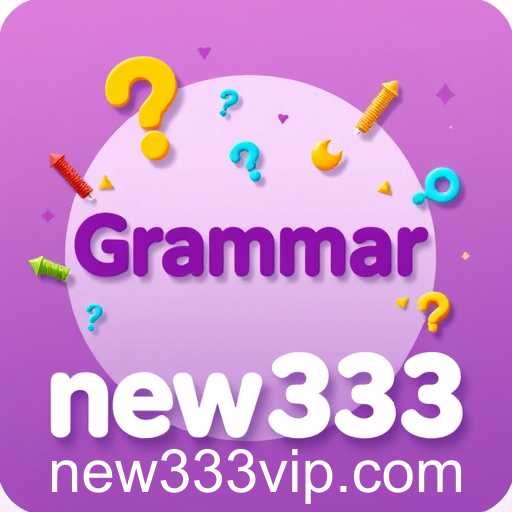Discover how 'Grammar Games' are revolutionizing language learning through interactive and engaging digital experiences.
In the evolving landscape of digital education, "Grammar Games" emerges as a novel category dedicated to enhancing language skills through interactive play. Leveraging the keyword 'new333', this innovative approach combines the mechanics of gaming with the fundamental principles of grammar, creating a captivating learning experience for both young learners and language enthusiasts.
Language acquisition has always been a cornerstone of education, yet it has often been perceived as a daunting and monotonous task. 'Grammar Games' aims to shift this perception by transforming traditional methods into dynamic, engaging activities. This category of games replaces rote memorization and tedious exercises with interactive challenges that not only make learning fun but also improve retention and comprehension.
What sets 'Grammar Games' apart is its diverse range of offerings. Whether it's through mobile applications, online platforms, or desktop software, these games cater to various learning styles and preferences. They incorporate elements such as point-scoring systems, time challenges, and level progression to maintain players' interest and encourage regular practice. By gamifying grammar, these tools provide immediate feedback and rewards, reinforcing positive learning habits in an enjoyable way.
The use of the keyword 'new333' represents the latest trends and updates within the 'Grammar Games' category, signifying a commitment to continuous improvement and innovation. This focus ensures that users receive the most effective and engaging educational experiences available.
In addition to individual learning, 'Grammar Games' facilitates collaborative education. Many platforms offer multiplayer options, allowing users to compete with friends, classmates, or global players, thereby fostering a community of learning and mutual support. These features not only enhance the educational value but also build communication skills and camaraderie among participants.
Educators are increasingly incorporating 'Grammar Games' into their curricula, recognizing their potential to enhance traditional teaching methods. The games serve as supplementary tools that provide personalized learning experiences, effectively addressing the varying needs and paces of language learners.
In conclusion, the 'Grammar Games' category represents a significant advancement in educational technology, integrating fun with functionality to improve language learning outcomes. As developers continue to expand and refine these tools, learners worldwide can look forward to a future where mastering grammar is both accessible and enjoyable.




